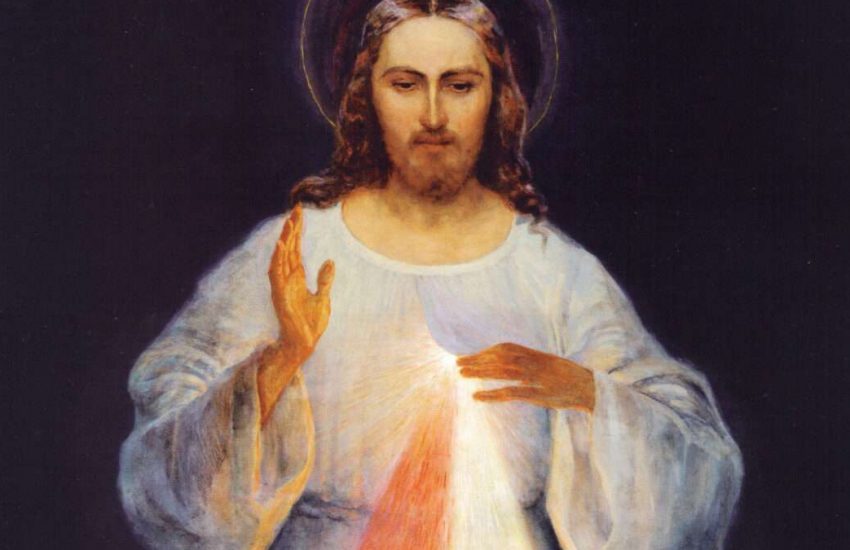In the Beginning
27th Sunday in Ordinary Time (B)
“From the beginning of creation…” When Jesus is asked about divorce in this Sunday’s gospel reading, his response hearkens back to the beginning. So it is fitting that the first reading from this Sunday’s Mass also takes us back to the beginning, to the account of the creation of the first man and woman.
Our reading from Genesis picks up with verse 18 of chapter 2, after God has made Adam and placed him in the garden of Eden, commanding him to cultivate and care for it. Then God says, “It is not good for the man to be alone. I will make a suitable partner for him.” Not a slave. Not a servant. And not a master or a superior. But a partner.
God then created Eve out of one of Adam’s ribs. The original Hebrew word here doesn’t mean a “rib bone” but simply means “side.” Eve was created from Adam, signifying that man and woman have the same nature. Unlike the animals and plants Adam had care over, Eve was of the same substance as him. So when Adam sees her for the first time, he says, “This one, at last, is bone of my bones and flesh of my flesh.” She and he are the same. And being made from Adam’s side, Eve is neither above nor below him. She is next to him; a partner equal in dignity before God.
Our reading from Genesis ends with the verse that Jesus quotes in the gospel; that a man should cling to his wife, and the two of them become one flesh (Gen 2:24).
This is how it was between man and woman “in the beginning.” This is what Jesus calls us back to when he is asked about divorce.
Original Justice & the Fall
A divorce is a severing of a relationship. The Church teaches that before the Fall, mankind enjoyed harmony in his relationships. The Catechism of the Catholic Church says that, “The first man was not only created good, but was also established in friendship with his Creator, and in harmony with himself and with the creation around him…” (CCC 374). And, “The inner harmony of the human person, the harmony between the first couple and all creation, comprised the state called ‘original justice'” (CCC 367).
This “original justice” meant that man lived in right relationship with God as well as with the rest of creation. Man lived in harmony with both what was above him (God) and below him (creation). With the creation of Eve, Adam had someone to be in relationship with that was not above him or below him, but equal to him in dignity. This relationship, too, was also one of harmony.
But as a result of the Fall, mankind lost “the entire harmony of original justice” (CCC 379). Our relationship with God was broken, and with it, our relationship with the rest of creation, including the relationship between man and woman.
The last thing Genesis tells us about Adam and Eve before the Fall is, “The man and his wife were both naked, yet they felt no shame” (Gen 2:25). Adam and Eve had no need to hide their bodies from one another because they felt no shame. They felt no shame toward their own bodies because they had harmony with themselves. And they felt no lustful shame toward one another’s bodies because they had harmony with one another. They saw each other as persons to love, not objects of lust. They saw each other as beings to be loved for their own sake, not means to an end. “Naked” doesn’t just mean without clothing. It means exposed. It means vulnerable. Nothing was hidden between them. They were naked, and unashamed.
Immediately after that first sin, Adam and Eve hid their nakedness (Gen 3:7). They hid themselves from one another, and they hid from God (Gen 3:8). Their hiding of themselves is symbolic of their broken relationship. By breaking their relationship with God by their sin, they also broke their relationship with one another.
Reconciling Grace
Our relationship with God was broken by the sin of Adam, but it was restored by the sacrifice of Jesus Christ. And in restoring us to right relationship with God, Jesus also restores our relationship to one another.
Jesus calls us back to the beginning. He makes us new again. He restores God’s original plan for harmony between the sexes. This is why divorce is not possible for two baptized Christians in a sacramental marriage.
Moses allowed for divorce, Jesus tells the Pharisees, “because of the hardness of your hearts” (Mk 10:5). The scriptures call hearts “hard” or “stony” when they are not open to God’s grace. After the Fall, mankind’s hearts were hard. All our relationships were broken, including the relationship of man and wife. For this reason divorce — the ending of a marital relationship — could be permitted.
But with the coming of Christ, it is possible for us to be in right relationship with God and with one another. So Christians are called to live out the marital vocation as it was “in the beginning.”
“But from the beginning of creation, God made them male and female. For this reason a man shall leave his father and mother and be joined to his wife, and the two shall become one flesh. So they are no longer two but one flesh. Therefore what God has joined together, no human being must separate” (Mk 10:7-9, quoting Gen 2:24).
A Higher Calling
The Church permits divorce and remarriage for unbaptized Christians, because “of the hardness of their hearts.” But those who are baptized in Christ are called to a more perfect union. They have been restored to right relationship with God, and this should be reflected in our relationship with others, especially to one’s spouse.
This does not come automatically. Just as we are still capable of damaging our relationship with God by sin, we remain capable of damaging our relationships with others. But as Christians we are called to repent of our sins and seek reconciliation — both from God in the sacrament of Confession, but also from one another. This is why it is so important for married couples not only to be willing to ask forgiveness of each other, but to extend that forgiveness in mercy.
Jesus will never abandon his Divine Bride, the Church, who is also his Body, and so Christian husbands and wives should never abandon their spouse, with whom they have become “one body.” This requires trust. This requires perseverance. This requires mercy. Most of all, this requires genuine love.
Not Just For Marriage
We’ve been talking about the relationship between man and woman in terms of marriage, because this is the immediate context of Jesus’ teaching about divorce in this week’s gospel. But being in right relationship with the opposite sex is a universal calling. Married or not, men and women are called to regard one another as fellow persons made in the image and likeness of God, equal in dignity, and “complimentary as masculine and feminine” (CCC 372).
Men and women should see in each other not an object for their personal gratification, but a fellow human person who has been loved into being by God for their own sake. “Being man or being woman is a reality which is good and willed by God: man and woman possess an inalienable dignity which comes to them immediately from God their Creator. Man and woman are both with one and the same dignity ‘in the image of God.’ In their being-man and being-woman, they reflect the Creator’s wisdom and goodness” (CCC 369).
This is true not just in marriage, but also in the classroom, in the workplace, in our churches and in our families. Someone may not be your husband or wife, but in Christ they are your sister and brother.
Men and women are each made in the image of God, but they image God in complimentary ways. As you seek to live in right relation with members of the opposite sex, consider that God is showing himself to you through this person in a way he cannot do through any other, and specifically in a way that compliments his own image within you.



